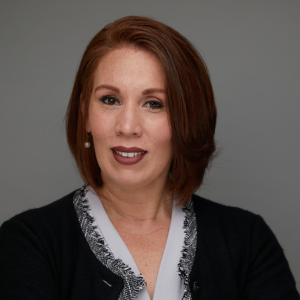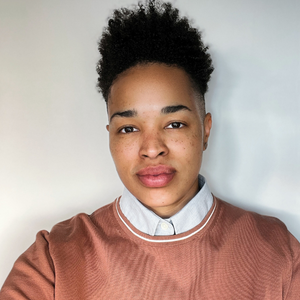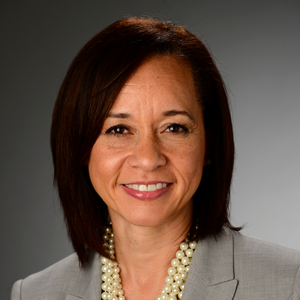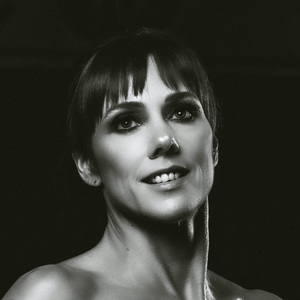Cheryl Akawie: Head of U.S. Investment Grade Research, PGIM Fixed Income
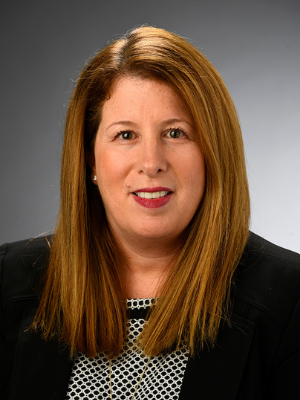 “There’s still a notion that all paths in investing lead to investment banking, which dissuades many women from entering into a career in investing, but it’s definitely not the case,” says Cheryl Akawie.
“There’s still a notion that all paths in investing lead to investment banking, which dissuades many women from entering into a career in investing, but it’s definitely not the case,” says Cheryl Akawie.
Akawie speaks to holding to your values, the importance of curiosity and why you want to learn from and be the kind of leader you respect.
An Ever-Changing Context
Joining Prudential out of Lehigh University as a finance major, Akawie relatively quickly gravitated from investment auditing to working directly with investments, where she felt her skills and interest would be optimized.
For over 28 years, she’s been working in investments–covering some of the major sectors she began with, such as telecom and cable–and stretching into new sectors such as media and technology.
“Everything changes–the companies have changed, the industries change. Right now, the tech industry is going through tremendous change,” says Akawie. “I’m watching which companies will be winners and losers, so my job stays interesting even within the same sectors.”
Akawie calls herself a ‘credit geek’: “I like to dig into the details of companies and figure out what makes them tick and what they might do next. What will make them successful or not successful as things change–will the big names in linear television be successful when the world has moved to streaming?”
She appreciates how integrated the investment process is from start to finish at PGIM Fixed Income, with hand-in-hand collaboration between analysts and portfolio managers. Taking on a new position leading the U.S. investment grade research team a couple years back has allowed her to support experts across the various sectors, helping ensure the well-established investment process runs smoothly and her teams’ contributions are recognized.
Holding To Your Values
“To me, what has mattered in my success has been being true to myself and not compromising my beliefs. That applies in many different ways,” says Akawie. “For example, I could not be on the sell-side and push an investment idea if I didn’t believe in it. As an analyst, I analyze it and tell it like it is. I’m not going to hold back on my views. Being on the buy-side, we don’t have to buy everything, so it has always been a good natural home for me.”
Going further, she expresses: “I think that principle has stood through all aspects of my career and added to my leadership. You should never compromise your values and you should be willing to stand up for what’s right. You should be willing to stand up for your team.”
Moving into a leadership role has meant taking a more holistic view not only in looking comparatively across industries, but also putting herself in the shoes of others when making organizational decisions.
“If we’re trying to revamp a process, I have to consider what may work better for the team,” she says. “As a leader, it’s important to step out of my role and put myself as the team leader and the organizational leader to consider what is best for the team, regardless of whether it would negatively impact or be inconvenient for me.”
Choosing Your Leadership Approach
Akawie feels her promotion largely came down to her track record on training up more junior analysts across the years. She enjoys working with junior talent and imparting her skills to help develop their ability to analyze, especially appreciating the moment when it all “clicks,” which she argues only happens when the analyst learns to combine fundamental credit research analysis and the relative value decision around which bonds to own.
Her personal leadership approach is to be relatable and approachable, and she keeps an open door policy.
“I had to figure out what kind of leader I wanted to be, and I’ve had different kinds of managers over the years. I’ve had the micromanager, where they want to check over everything that you do. I’ve had the more hands-off manager that recognizes you are a professional,” she says. “I chose to emulate my style more from the latter, because I respected when I was on the other side. I’m here if you need me. I’ll be your coach and advocate. But to get from here to there, use your own style, as long as you get it done.”
Myth-busting: Not All Investment Careers are Investment Banking
In addition to running the investment grade credit research group, Akawie is actively involved in recruiting for the credit research team in addition to sitting on the Talent Council, so she has a special window into the underrepresentation of women.
“It really frustrates me that even now it’s still such a male-dominated industry and in any meeting, there are still noticeably fewer women in the room,” says Akawie, who feels a perception issue plays into this.
“There’s still this perception that all investment careers are investment banking, where you don’t have a life,” she says. “I really wish there was a way to get the message out to young women that there are plenty of fulfilling, lucrative careers that you can have in asset management that don’t involve working 18-hour days and weekends. You can actually live a balanced life while also being a successful investment professional.”
Passion And Curiosity Go A Long Way
Akawie feels that having a passion for investments, as well as a strong intellectual curiosity, is a cornerstone of being a successful credit analyst or portfolio manager.
“Your mind should always be open because you can find investment ideas anywhere. You hear something on the news, or you read an article in Barron’s–you see something not necessarily in your industry, but it could be related,” she notes. “It’s that intellectual curiosity and passion that matters, because it won’t seem like a job, and you’ll have a long and dynamic career.”
Akawie also presses that it’s a measure of intelligence to be honest about what you don’t know, and that it’s critical to remember that in the world of investments, you’re never going to get everything right.
“We’re investing in corporate bonds. They’re not guaranteed. You’re not going to be right 100% of the time,” she says. “One of the harder things when you’re trying to transition somebody from a junior analyst to a senior analyst is developing that willingness to stick your neck out, express your opinion and not be afraid to be wrong. And if you are wrong, admit and own it, don’t make excuses, simply learn and move on.”
She leverages her own curiosity to convert the occasional missed call into a learning experience: “I often review, and I’ll ask what did I miss? What could I have done differently? And, then you make a better investment decision next time because of what you learned this time.”
Being A Leader You Would Respect
Akawie has found informal mentorships are the most valuable kinds of mentoring, which comes back to being open and approachable.
“To be a mentor or to be a mentee, you have to open up and not be afraid to share parts of yourself–so that people actually get to know you and they’re willing to share their secret sauce,” she says. “And I think that comes from having personal relationships. If everything is just business, I think it makes it hard for that relationship to develop.”
When choosing who you wish to learn from, Akawie goes with whom she truly respects. For her, that’s someone who takes pride in their work and gives their full energy, earning the respect of their team, because this is what she values and wishes to do.
Akawie loves traveling the world and seeing new cultures, which have included Africa, Southeast Asia and Hong Kong. Currently, she’s steeped in her latest passion of home remodeling.
By: Aimee Hansen



